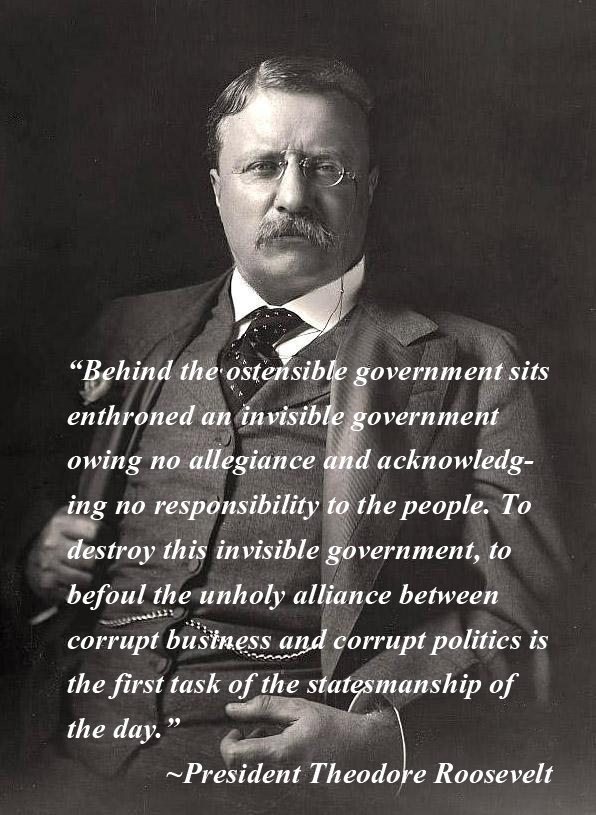
This is part of a series examining the issues in the presidential election. To see other articles in the series, click on the “2020 Elections” link on the Home page
Score
Biden 0 Trump -1
Trumps victory in 2016 was powered by a call to “drain the swamp” in Washington, which never consisted simply of campaign reform. It sought to end the kind of cancer described by Roosevelt – the control of government by a privileged few that subverts the very nature of democracy itself. We also now know it means different things to different groups. In this campaign, the call for reform has focused on not just campaign reform, but also on federal administrative and policing changes.
Campaign Finance Reform
The Citizens United decision and our loophole-riddle campaign finance laws have loosed a flood of money whose origins are opaque and very probably illegal. Democrats introduced a bill that would plug some of those loopholes. It attempts to limit the impact of Citizens United by requiring disclosure of donations of more than $10,000 from certain non-profits that were previously exempt. It cracks down on digital ad spending on social media platforms by requiring the same kind of disclosure of the source of ads required for television and radio commercials. The bill also attempts to limit the use of social media for the kind of election interference we saw from the Russians in 2016 by banning campaign contributions from corporations with significant foreign ownership. Finally, it also prevents foreign individuals from purchasing social media ads. Former Vice President Biden has endorsed these proposals and President Trump opposes them. This earns Biden a +1 and Trump a -1.
However, there is a sleeper issue in campaign finance that has been ignored by both candidates. If you are like me, your e-mail box has been deluged by appeals for campaign contributions from any number of candidates and partisan political action committees. They seek contributions of as little as five dollars by simple completion of a form on the Internet and a charge via PayPal or by credit card. While the identity of the donors must be disclosed, there are no rules requiring the verification of their identities. A former Kansas attorney general recently issued an analysis of the contributions to the ActBlue independent committee’s which raised over $900 million for Democratic candidates. It showed how ActBlue has gamed the campaign finance system so that the true sources of their contributions is almost impossible to determine. This makes it easy for large donors to break up their contributions or foreign donors to hide theirs. If Biden or President Trump are really interested in controlling dark money, this loophole must be plugged as well.
Federal Administrative Law Reform
The failure of Congress to address a pressing issue has now become an excuse for forcing action through administrative rulemakings. As I mentioned in my post on the US Supreme Courts’ s opinion on the DACA rulemaking, current law makes it difficult to control an executive agency’s impulse to fill this perceived gap. This essentially creates a fourth branch of government whose inner workings are known and accessible to only a few.
Federal executive power needs to be reined in through new legislation that
- Limits agency rulemaking to discrete subjects narrowly delegated to the agency;
- Prohibit agency action if its impact on the economy or the number of people affected exceeds certain thresholds;
- Allows more opportunity to challenge a agency ruling and repeal it.
The DACA and Clean Power Plan rules of the Obama Administration show that Vice President Biden is a likely opponent of such reforms. Meanwhile, Trump has relied on and touted his executive power instead of pursuing legislation to prevent a future president from abusing those powers. President Biden’s’ implied approval of current agency power results in a -1 for him on this issue while Trump deserves only a 0.
Law Enforcement Reform
The death of George Floyd and other African-Americans at the hands of the police and the FBI abuses of the FISA warrant system revealed in the Russia investigation has highlighted another swamp that needs to be drained – the excessive and unchecked power of law enforcement. As mentioned in this post, policing reforms must be based not only reducing qualified immunity and other changes in tactics, but also a top-to-bottom review of our law enforcement strategy.
Former Vice President Biden supports proposals to reform police tactics, but never mentions the need for increased funding for the police necessary to do their job of maintaining order in our communities. Meanwhile, the Obama Administration’s acquiescence at the least, and encouragement at worst, of the FBI’s FISA abuses does not inspire any confidence that he would support reform in this area. These two positions cancel each other out and earn him a zero on this subject. While the Trump Administration is vigorously pursuing the FBI abuses via the John Durham investigation, the President has ignored, and at times demagogued, the police brutality issue, Again, the two positions cancel each other out and thus he also deserves only a zero.
Conclusion
It is truly discouraging that neither candidate shares Roosevelt’s level of concern about the perilous state of American democracy and civil rights. Trump’s failures are particularly galling since his 2016 campaign featured the issue. It is up to American nationalists to press these issues with congressional candidates and in future elections.

